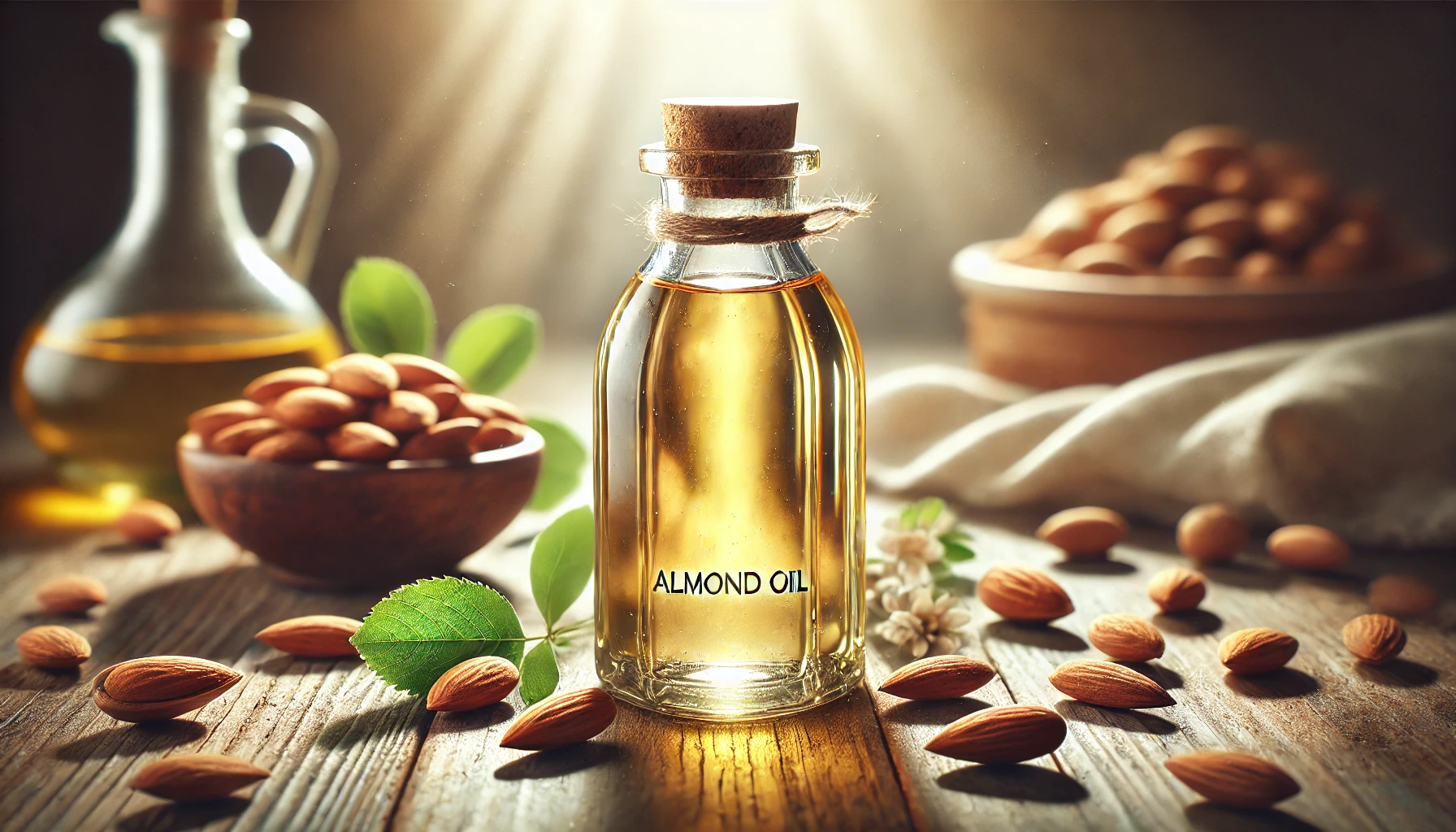Almond Oil in Soap Making: Importance and Benefits

Almond oil is a highly nourishing and moisturizing ingredient widely used in handmade and natural soap making. Extracted from almonds, this oil is rich in Vitamin E, essential fatty acids, and antioxidants, making it perfect for hydrating the skin, improving soap texture, and enhancing lather.
In this blog, we will explore the importance of almond oil in soap making, its benefits, and how to use it effectively to create high-quality, skin-friendly soaps.
বাংলা পোস্ট
Why is Almond Oil Important in Soap Making?
Almond oil is a light, non-greasy, and deeply moisturizing oil that enhances the overall quality of soaps. It is particularly beneficial for sensitive, dry, and mature skin, as it helps maintain hydration and provides a luxurious feel.
✅ Moisturizes & Softens Skin – Keeps the skin hydrated and prevents dryness.
✅ Improves Soap Texture – Adds smoothness and a silky feel to soaps.
✅ Boosts Antioxidant Protection – Rich in Vitamin E, helping protect the skin from free radicals.
✅ Enhances Soap Lather – Helps produce a creamy and rich lather.
✅ Makes Soap Last Longer – Contributes to a more stable and long-lasting bar of soap.
💡 Tip: Since almond oil is a soft oil, it is best used in combination with hard oils like coconut oil, palm oil, or olive oil to create a well-balanced soap.
Benefits of Almond Oil in Soap Making
1. Deeply Moisturizes & Hydrates the Skin 💧
Almond oil is an excellent emollient, meaning it helps lock in moisture and keep the skin soft and supple. It is ideal for making hydrating and gentle soaps that are perfect for dry skin.
🔹 How to Use:
✔ Use 5-15% almond oil in your soap recipe for a deep moisturizing effect.
2. Creates a Smooth & Luxurious Texture 🧼
Soaps containing almond oil feel silky and smooth, reducing the roughness that some other oils may cause.
🔹 How to Use:
✔ Add 3-10% almond oil to improve the soap’s softness and texture.
3. Rich in Antioxidants & Anti-Aging Properties 🌿
Almond oil is packed with Vitamin E and Omega-3 fatty acids, which help reduce fine lines, wrinkles, and skin damage caused by free radicals.
🔹 How to Use:
✔ For anti-aging soaps, use 5-10% almond oil in your soap formulation.
4. Soothes Acne & Sensitive Skin 🦠
Almond oil has anti-inflammatory and antibacterial properties, making it great for acne-prone and sensitive skin. It helps reduce irritation, redness, and breakouts.
🔹 How to Use:
✔ Use 5-7% almond oil in soap designed for acne-prone skin.
5. Enhances Soap Lather & Longevity 🛁
Almond oil improves soap lather, making it creamy and luxurious, while also helping the soap last longer.
🔹 How to Use:
✔ To enhance lather and durability, add 7-12% almond oil to your soap formula.
How to Use Almond Oil in Soap Making?
The percentage of almond oil in soap should be well-balanced to ensure both moisturizing properties and soap hardness.
| Soap Type | Recommended Almond Oil Percentage (%) |
| Regular Bar Soap | 3-7% |
| Moisturizing Soap | 5-15% |
| Anti-Aging Soap | 5-10% |
| Acne-Fighting Soap | 5-7% |
💡 Tip: Avoid using more than 15% almond oil, and always mix it with harder oils like coconut oil, olive oil, or palm oil for the best results.
DIY Almond Oil Soap Recipe (Cold Process Method)
Ingredients:
✔ 300g Olive Oil (For nourishment and deep hydration)
✔ 200g Coconut Oil (For a firm texture and cleansing properties)
✔ 100g Almond Oil (For extra moisturization and smoothness)
✔ 80g Lye (Sodium Hydroxide – NaOH)
✔ 190g Distilled Water
✔ 10-15 Drops Essential Oil (Lavender, Tea Tree, or Lemon – Optional)
Instructions:
1️⃣ Prepare the Lye Solution
- Wear gloves and safety goggles.
- Slowly add lye to distilled water (NEVER add water to lye).
- Stir carefully and let it cool.
2️⃣ Heat the Oils
- In a separate bowl, melt the olive oil, coconut oil, and almond oil together.
3️⃣ Mix Lye & Oils
- Slowly pour the lye solution into the oils while blending with a stick blender.
- Blend until the mixture thickens to a pudding-like consistency (“trace”).
4️⃣ Add Essential Oils & Pour into Molds
- Stir in essential oils for added benefits.
- Pour into soap molds and smooth the top.
5️⃣ Curing the Soap
- Let the soap sit for 24-48 hours until hardened.
- Remove from molds, cut into bars, and cure for 4-6 weeks before use.
✨ Your handmade almond oil soap is now ready!
Why Choose Almond Oil Soap Over Commercial Soaps?
Most commercial soaps contain harsh chemicals, sulfates, and synthetic additives that can strip the skin of its natural moisture. Handmade almond oil-based soaps are a natural alternative that provides:
✔ 100% Natural & Chemical-Free Ingredients
✔ Deep Hydration & Gentle Cleansing
✔ Rich Lather & Skin Protection
✔ Perfect for Sensitive & Dry Skin
💡 Switching to almond oil soap can transform your skincare routine!
Final Thoughts
Almond oil is a powerful ingredient in soap making, offering moisturization, skin protection, and anti-aging benefits. Whether you’re making hydrating, anti-aging, or acne-fighting soap, almond oil enhances texture, nourishment, and overall quality.
🌿 Start using almond oil in your next soap-making project for softer, healthier skin! 🌿
👉 Have you tried almond oil in soap before? Share your experience in the comments! 😊

2 thoughts on “Almond Oil in Soap Making: Importance and Benefits”